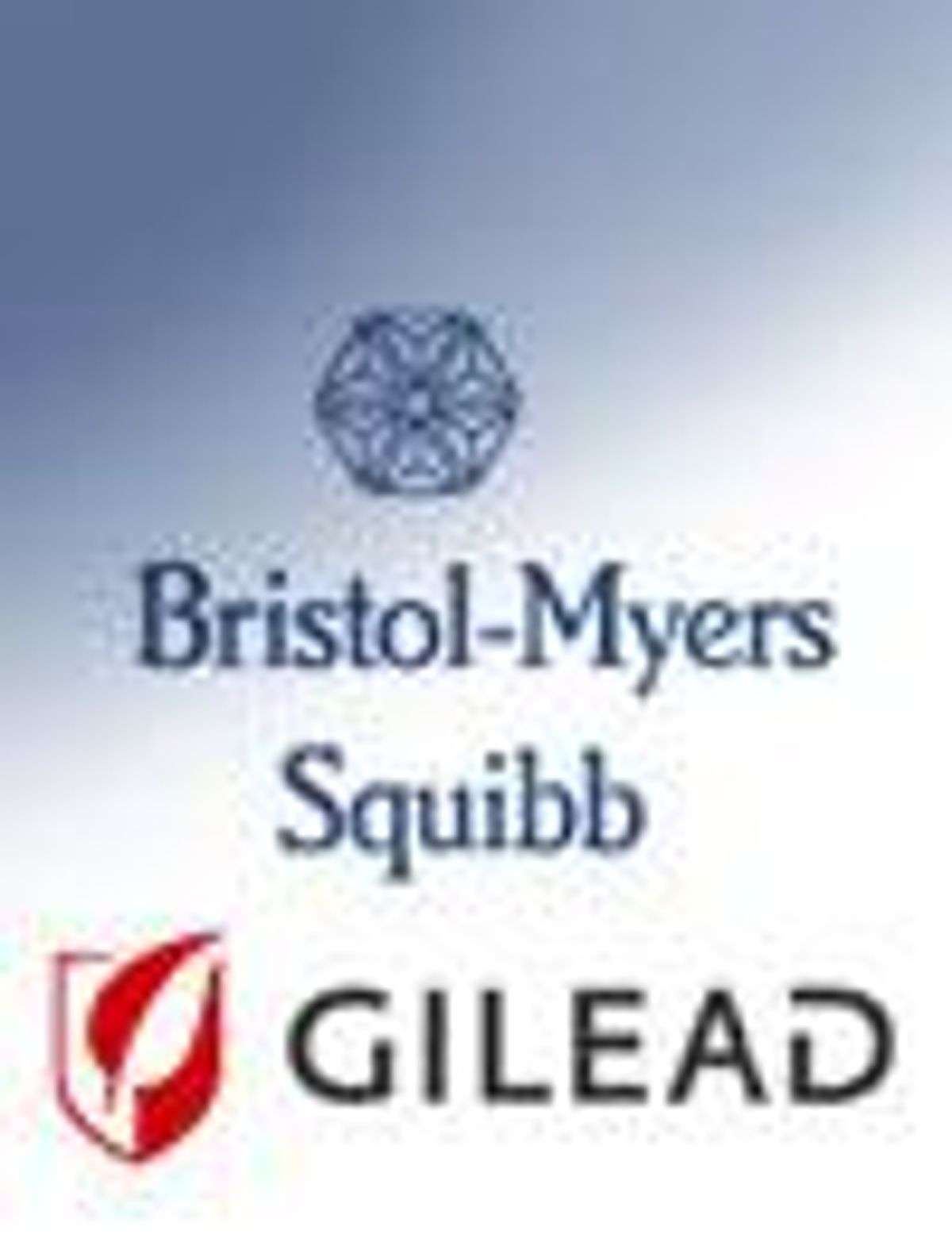The Food and Drug
Administration on Wednesday approved Bristol-Myers
Squibb and Gilead Sciences' three-in-one HIV treatment
that's taken just once daily. Called Atripla,
the pill contains 600 milligrams of BMS's
nonnucleoside reverse transcriptase inhibitor Sustiva, 200
milligrams of Gilead's nucleoside reverse
transcriptase inhibitor Emtriva, and 300 milligrams of
Gilead's nucleotide reverse transcriptase
inhibitor Viread. Atripla is the first-ever one-pill,
once-daily full antiretroviral regimen approved for
use in the United States.
"The
availability of Atripla marks the culmination of 10 years of
efforts to simplify dosing while helping to achieve
and maintain effective viral suppression for adults
infected with HIV," said John G. Bartlett of Johns
Hopkins University in a press statement.
Gilead and BMS
officials say Atripla will be on the market by the end of
next week. Industry experts say the price of Atripla will
likely be the same as its component drugs, about
$1,200 per month. The pill also is expected to be
available through not-for-profit agreements with
developing nations for about $600 per person per year.
A study earlier
this year in The New England Journal of
Medicine showed that Atripla is more effective at
controlling HIV in treatment-naive patients than even the
current gold standard of nonnucleoside reverse
transcriptase inhibitor-based therapy. Led by
researchers at Johns Hopkins University, the study showed
that the Sustiva-Viread-Emtriva combination did a
better job of reducing HIV viral levels and increasing
CD4-cell counts after one year of treatment that the
gold-standard combination of Sustiva plus Retrovir and
Epivir. Also, fewer individuals on the one-pill
regimen dropped out of the study due to adverse
events.
Atripla's
Sustiva-Emtriva-Viread combination is currently recommended
by the Department of Health and Human Services for the
treatment of HIV-positive adults just beginning
antiretroviral therapy.
The collaboration
between BMS and Gilead is the first of its kind in the
25-year history of the AIDS epidemic. In December
2004 the companies established a U.S. joint
venture to develop and commercialize the single-pill
regimen. The first two attempts to mix the drugs failed,
with the combinations not achieving the same
bioequivalence as the three component drugs dosed
individually. But a new layering technology permitted
researchers to successfully stack the component medications
into a single pill on the companies' third try, and the
resulting medication was submitted to the FDA for
review in April.
"We
appreciate the recognition by the FDA of this important
therapeutic advance, and with their approval of
Atripla in just over two months, patients will now
have rapid access to the first once-daily single tablet
regimen for the treatment of HIV infection in
adults," John C. Martin, president and CEO of
Gilead Sciences, said in a press statement.
"With the
approval of Atripla, Bristol-Myers Squibb continues two
decades of progress in the development and
commercialization of medications to treat HIV,"
said BMS president of U.S. pharmaceuticals Anthony C. Hopper
in a press statement. "Atripla is an important step
forward as we continue our focus on discovering,
developing, and providing innovative treatments for
serious diseases." (The Advocate)


















































































Viral post saying Republicans 'have two daddies now' has MAGA hot and bothered